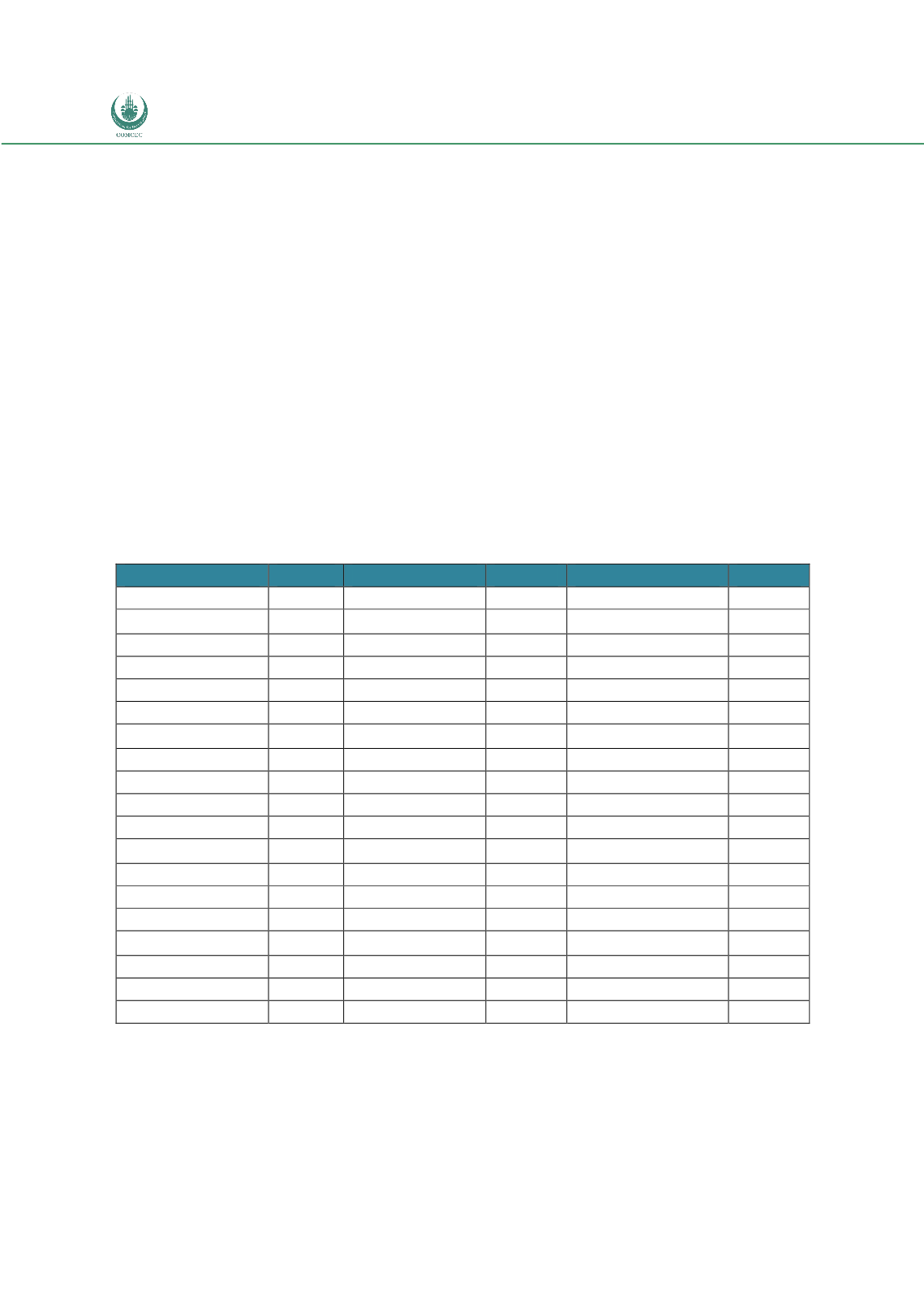

FACILITATING INTRA-OIC TRADE:
Improving the Efficiency of the Customs Procedures in the OIC Member States
74
3.1.7. Single Window
In most of the Member States, cost and time for collecting the documents to clear the
goods is above the world average. In order to simplify the procedures, in parallel with
the trends in developed countries, some of the Member States including LDCs have
established or in the process of establishing their national single windows.
The concept of single window varies among the Member States. Some of the national
single windows linked all the relevant government agencies under the framework. On
the other hand some of them have limited coverage. According to Doing Business
Report 2014, among the 189 countries surveyed, 73 of them have Single Window which
links some of the relevant government agencies which represents 38,6 percent of the
total. On the other hand, within the OIC, 16 Member States have a single window
representing 28 percent of the total OIC Member States. Table 16 illustrates the status
of the OIC Member States with regards to Single Window.
Table 16: Status of Member States in Having Single Window Which Links Some of the
Government Agencies
Country
Status Country
Status
Country
Status
Afghanistan
Guyana
Pakistan
Albania
Indonesia
Palestine
Algeria
Iran, Islamic Rep.
Qatar
Azerbaijan
Iraq
Saudi Arabia
Bahrain
Jordan
Senegal
Bangladesh
Kazakhstan
Sierra Leone
Benin
Kuwait
Somalia
n.a.
Brunei Darussalam
Kyrgyz Republic
Sudan
Burkina Faso
Lebanon
Suriname
Cameroon
Libya
n.a.
Syrian Arab Republic
Chad
Malaysia
Tajikistan
Comoros
Maldives
Togo
Cote d'Ivoire
Mali
Tunisia
Djibouti
Mauritania
Turkey
Egypt, Arab Rep.
Morocco
Turkmenistan
n.a.
Gabon
Mozambique
Uganda
Gambia, The
Niger
United Arab Emirates
Guinea
n.a.
Nigeria
Uzbekistan
Guinea-Bissau
Oman
Yemen, Rep.
Note: (
): Having Single Window (
): Not having a Single Window (n.a.): information not available
Source: Doing Business Report 2014
The structures and working style of these single windows vary across countries. Some
of them have already linked all the relevant institutions and reduced the required time to
import and export dramatically in recent years. For example according to Doing

















